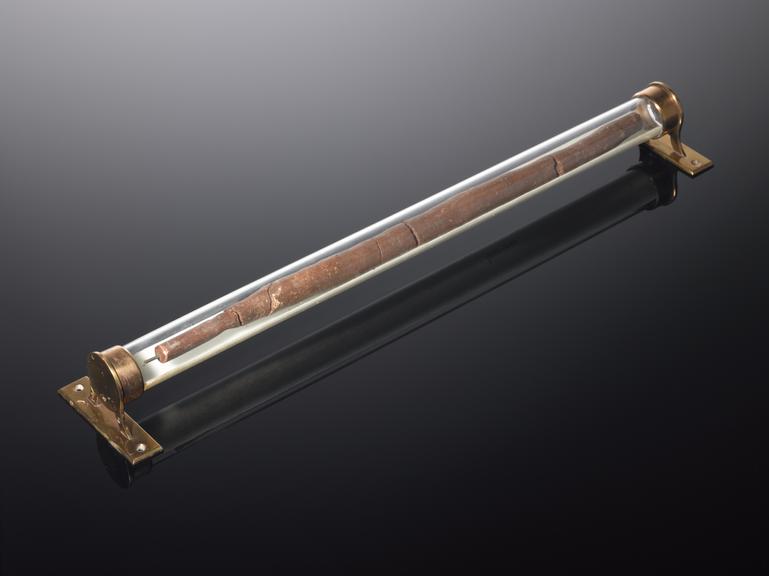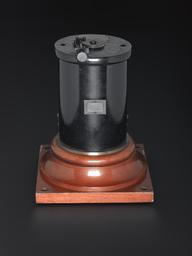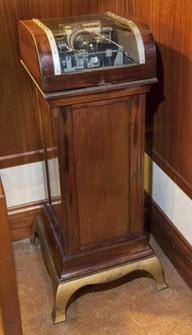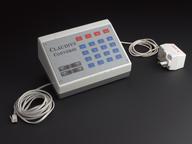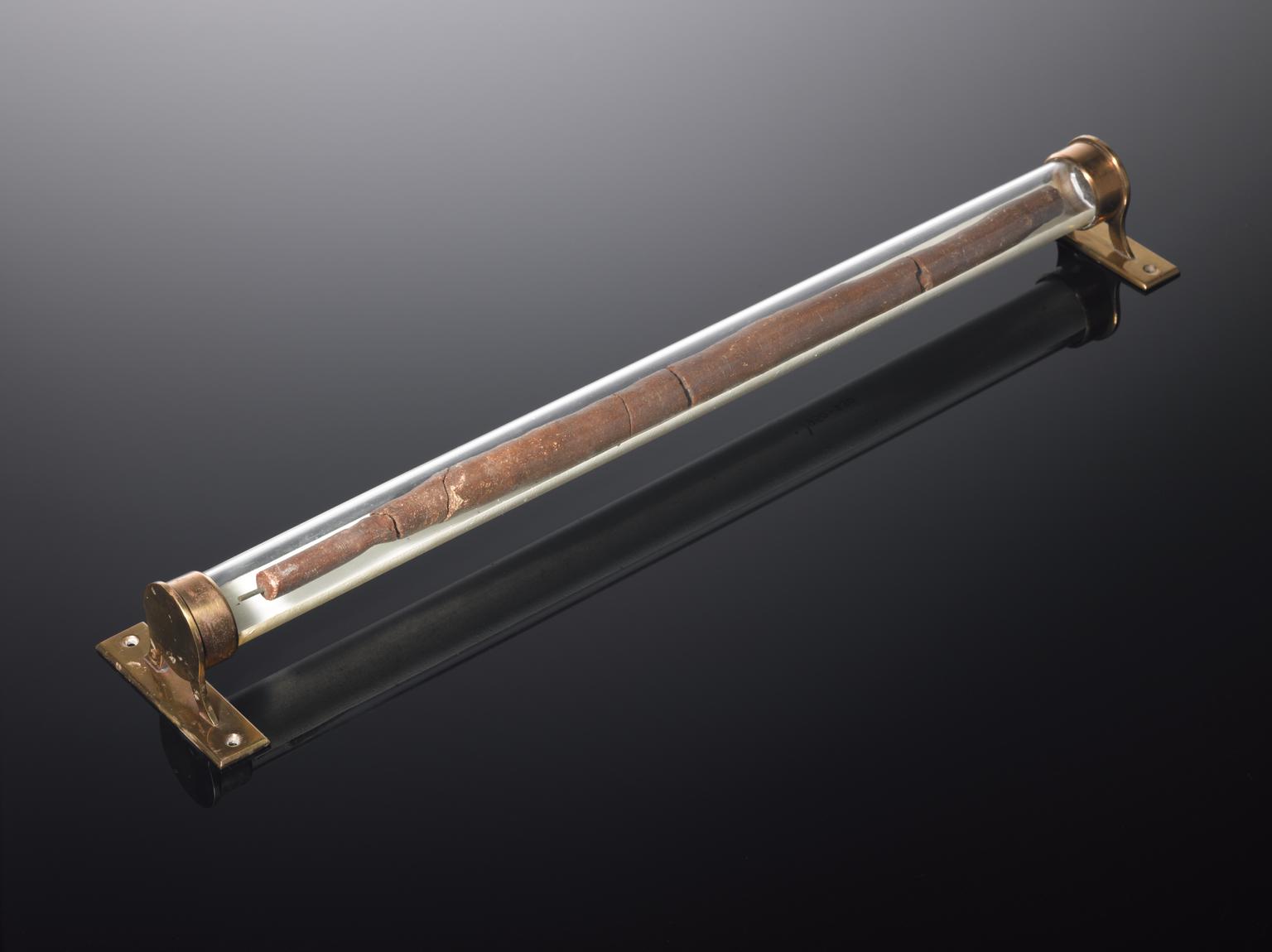
Sample of submarine cable laid between Dover and Calais, 1850
Short length (including a joint) of the original Cross-Channel submarine telegraph cable laid on 28th August 1850 between Dover and Calais. Cable originally made by Gutta Percha Company, Islington, London, England, 1850.
More
Short length (including a joint) of the original Cross-Channel submarine telegraph cable laid on 28th August 1850 between Dover and Calais. Cable originally made by Gutta Percha Company, Islington, London, England, 1850.
This cable consists of a single copper wire, with gutta-perch insulation, but no armouring. It was held down to the bed of the sea by lead weights attached at 100-yard (91.4 m) intervals. It was laid between Dover and Cap Gris Nez on 28 August 1850, and failed during the first night, reportedly because a fisherman had caught the cable with his anchor and, without realising what it was, cut it free. The cable was not expected to be a permanent success, and the action of the tides soon destroyed the insulating material. It was intended as a test of the possibility of the idea of laying a cable between England and France. Having proved that it was possible, a second cable was laid the following year in 1851.
- Materials:
- copper (alloy) and gutta-percha
- Object Number:
- 1950-230 Pt1
- type:
- cable
- Image ©
- The Board of Trustees of the Science Museum

